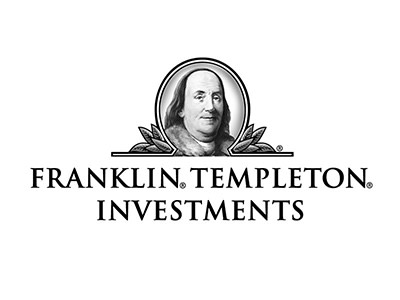The fund is managed by Lauren Romeo, who is supported by a highly experienced team at Royce with support from Franklin Templeton
Romeo invests in her own fund and is rewarded based on its long-term performance, aligning her interests with investors
The fund offers a differentiated approach to a lot of other US equity funds which means it has the potential to perform quite differently
This fund is on our Wealth Shortlist of funds chosen by our analysts for their long-term performance potential
How it fits in a portfolio
The FTF Royce US Smaller Companies fund aims to deliver long-term growth by investing in unloved US smaller companies, with the potential to come back into favour or recover in future. It could be a good way to add US exposure to a global portfolio, or work well alongside other US funds focused on larger, more growth-style companies. Smaller businesses are often among the most innovative and offer lots of growth potential, but they're higher risk than their larger counterparts.
Manager
The fund is managed by Lauren Romeo, who joined Royce and Associates in 2004 and became manager in 2010. We like the Royce team’s disciplined approach and think Romeo is an engaging and experienced fund manager with a passion for investing in smaller companies. Romeo is supported by a team with lots of experience, including the firm’s founder Chuck Royce who has been investing client money since 1973. We believe that the fund harnesses the skills of a talented team with a sensible investment approach. Romeo is also named as co-manager on some other funds in the US that invest with a similar philosophy as this fund. We’re satisfied that these responsibilities are manageable.
Process
Romeo aims to invest in companies that are unpopular with investors and buy their shares at a price significantly lower than she feels they’re worth. They might be facing headwinds in the shorter term, so it's important they don't have too much debt. Romeo and her team spend a lot of time meeting with a company's managers to make sure they've got the skill and experience to turn the business around. They also speak to customers, suppliers and competitors to make sure the managers are executing their plan.
This analysis leads Romeo’s team to decide what they think a company's shares are worth. She thinks this process provides opportunities to spot companies that are undervalued. This could also provide some support when markets are weaker – if a company's share price is already lower than it should be, it might not fall quite so far as those that are more expensive. They won't get it right every time though and even when they do, it can take some time for other investors to realise the opportunity and to see the share price rise. This means there will be periods where the fund underperforms and seems at odds with the wider market, so this style of investing requires patience.
After speaking to Romeo, she still believes that smaller companies are the place to be. There are potential catalysts for smaller companies to perform well which include the further easing of inflation and the Federal Reserve continuing to lower interest rates.
The fund has also been hurt by the recent concerns of the health of the US economy. Unemployment has ticked up and there were various datapoints that remained negative especially in the industrial and consumer sectors. Romeo has used this weakness to top up some of her best ideas which have fallen more recently, this includes healthcare company Enovis and consumer discretionary company Inter Parfums.
She has also initiated a number of new positions including semiconductor company Axcelis Technologies. They are a critical step in creating electrical properties for chips. Axcelis dominates the more mature chips markets that are used to power devices in cars, industrial motors and aerospace. Romeo also added Consumer Discretionary company Visteon. Visteon supply digital instruments and displays that show and control functions in passenger vehicles.
Romeo also sold a number of companies more recently. Her conviction in these names has fallen more recently and she has decided to move onto better ideas. Materials company Ryerson was sold after poor execution whilst peers continued to do well. Steel pipes engineering company Northwest Pipe was also sold after they became more sensitive to pricing than they have historically.
Culture
The fund is managed by Royce and sits under the Franklin Templeton umbrella. Smaller-company value investing is Royce's specialism – it’s what they do and is where their expertise lies. This single focus distinguishes the firm from other asset managers in the US. Fund managers at Royce are required to invest substantial amounts in the funds they run and have variable bonuses based on the long-term performance of their funds. We feel this is a positive and ensures alignment with the interests of investors.
ESG Integration
Franklin Templeton was previously a laggard on ESG integration. But since its integration with Martin Currie (as part of the broader Legg Mason acquisition), the group has made significant strides forward, in part because of its ability to leverage Martin Currie’s expertise. Responsibility for carrying out ESG analysis sits with individual analysts and portfolio managers, and all stock research must consider the material and relevant governance, social and environmental factors that could impact a company’s ability to generate sustainable returns.
The firm offers a range of strategies that take a more hands-on approach to thematic investing and impact. All investment teams have access to a dedicated Stewardship & Sustainability Council, which brings together leaders in stewardship and sustainable investing from across Franklin Templeton’s investment management groups, covering every asset class and strategy range. The Council shares best practice and thought leadership with the wider business. There is a firm-wide commitment to avoid controversial weapons.
Franklin Templeton fund managers and analysts engage with executives and board members of the organisations they invest in to review issues they believe are material to the firms’ long-term prospects, supported by the firm’s ESG team. They also vote at shareholder meetings wherever possible, informed by three third-party voting advisers. The firm publishes regular ESG-focused articles and an annual stewardship report. It also outlines its voting activity on a fund-by-fund basis, although voting rationale is not available.
Romeo considers ESG (Environmental, Social and Governance) issues when researching individual companies. She thinks these factors have the potential to affect the long-term value of the investment and thinks sound understanding of how these factors could affect businesses is an important part of managing risk in the fund. That said, this is not a specialist responsible or sustainably invested fund.
Cost
The ongoing charge for this fund is 0.82%, but HL clients benefit from a saving of 0.33%, resulting in a net ongoing charge of 0.49%. This saving is provided through a 'loyalty bonus', which is tax-free in an ISA or SIPP. However, they may be subject to tax in a Fund and Share Account. The HL account charge of up to 0.45% per year also applies, except in the HL Junior ISA, where no account charge applies.
Performance
The fund’s made attractive returns since Romeo became a co-manager in 2010 but hasn’t managed to keep up with the broader US market of smaller companies. This is disappointing, and we would have expected the fund to perform better given the manager’s bias towards higher-quality smaller companies.
However, the manager’s investment style, and so many of the companies she invests in, have remained undervalued and out of favour for much of this period, holding back returns. We typically expect the fund to hold up relatively well when markets are falling. In contrast, we expect the fund to lag the peer group when markets rise quickly.
Over the last 12 months the fund hasn’t been able to keep pace with the market. The fund delivered a return of 5.69%* whilst the fund’s benchmark, the Russell 2000, returned 15.35%. The IA North American Smaller Companies peer group returned 13.25%. Past performance isn’t a guide to the future.
The fund’s investments in Healthcare and Communication Services companies were the largest detractors to performance. In particular digital media company Ziff Davis which was the largest detractor over the past 12 months. They have struggled as spending on digital marketing has fallen over the past few years, but there are also concerns that advancements in AI would mean less people would be viewing their content and articles, instead using websites like ChatGPT to get the information directly. Healthcare company Enovis also performed poorly. Enovis recently made their largest acquisition and there are near term concerns with the merger of the new company. Romeo believes the acquisition makes sense and investors are waiting for evidence of the acquisition’s success.
It wasn’t all bad news for Romeo and the team, some of their investments performed very well. This includes industrial company Korn Ferry. The company took aggressive cost cutting action which helped protect the company as demand started to weaken, now that demand has stabilised the company is in a much better place. Healthcare company Catalyst Pharmaceuticals also performed well as it gained approval for a new orphan drug.
We believe a well-diversified portfolio should have exposure to a mixture of different investment styles, asset classes and geographies, and we think this fund offers something quite different. All investments fall as well as rise in value, so you could get back less than you invest.
Annual percentage growth
30/09/2019 - 30/09/2020 | 30/09/2020 - 30/09/2021 | 30/09/2021 - 30/09/2022 | 30/09/2022 - 30/09/2023 | 30/09/2023 - 30/09/2024 | |
|---|---|---|---|---|---|
FTF Royce US Smaller Companies Fund | -7.77% | 40.99% | 0.51% | 10.87% | 5.69% |
IA North American Smaller Companies | 4.46% | 35.86% | -10.31% | 0.55% | 13.25% |
Russell 2000 | -4.31% | 41.59% | -7.59% | -0.37% | 15.35% |


